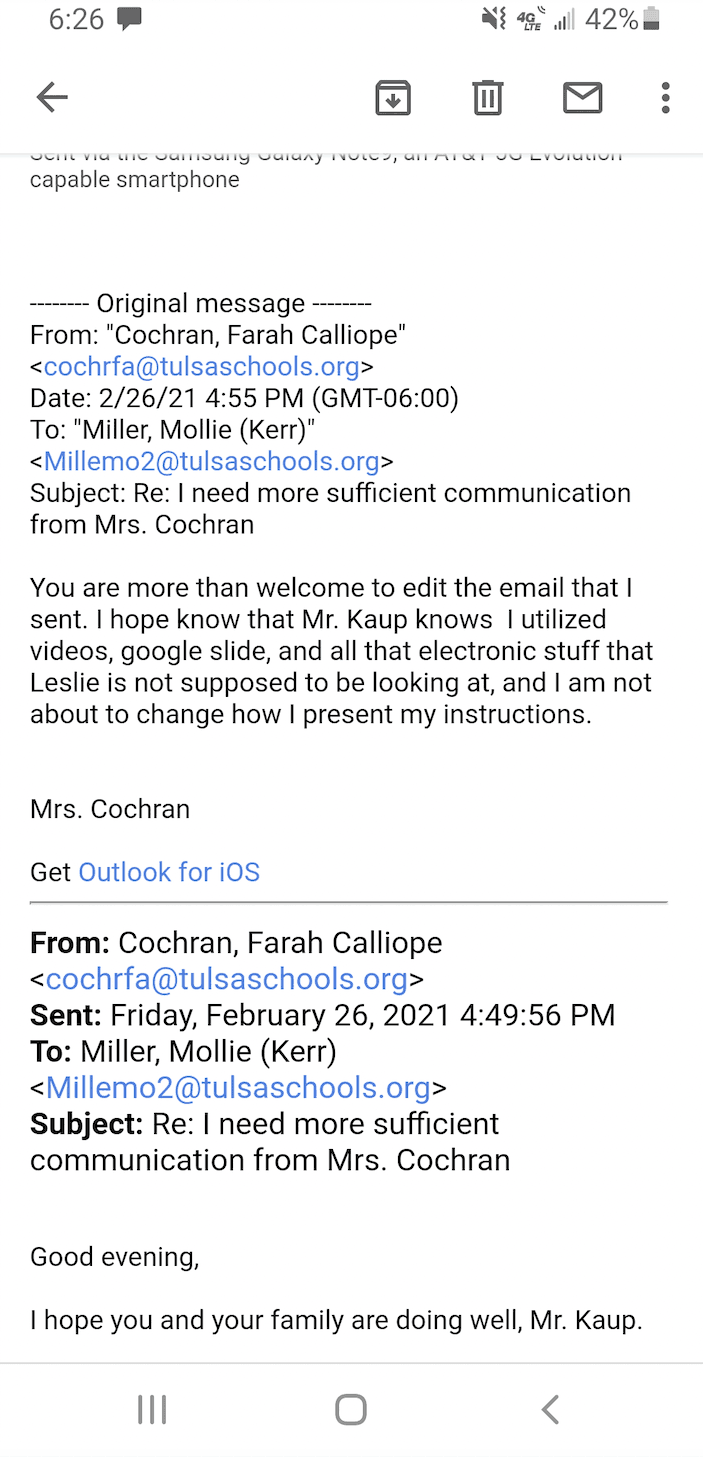
Education
Ray Carter | March 10, 2021
Tulsa schools accused of mistreating special-needs child
Ray Carter
A father says Tulsa school officials have ignored his son’s medical diagnoses and contributed to the child’s mental deterioration—in part because the father has been a parent advocate in education.
“They don’t care about my son’s mental disabilities,” said Leslie Kaup Jr. “It’s shameful for them to act like this.”
Kaup’s son, who is also named Leslie, is in the fourth grade and has attended Tulsa Public Schools since the first grade. A licensed psychiatrist has diagnosed the boy with autism, multi-personality disorder, bipolar disorder, depression, and sleep anxiety.
Those challenges legally require the district to make special accommodations for the boy’s unique needs, but Kaup said school officials have not only ignored those needs, but used methods known to put his son in mental crisis that required treatment at Parkside Mental Hospital.
“Over visual stimulation with him, it sends him into a mental crisis because with his autism his brain already goes about 1,000 miles-per-hour faster than what ours does,” Kaup said. “And if you overly stimulate through visual stimulation, they act a lot before they have time to properly think before they act—which, in my son’s case, is harmful behavior.”
Tulsa schools did not provide in-person instruction until late February. Prior to that time, all education was provided via distance learning. From the start of school last fall until Thanksgiving, Kaup’s son did most schoolwork via online learning. That ended with the boy having to go to Parkside Mental Hospital for treatment because the online delivery over-stimulated the child.
Following that episode, Kaup’s son was supposed to do distance learning via paper methods. But Kaup said the district never complied.
“After January 4, my son was no longer in school,” Kaup said. “He wasn’t doing any schoolwork because they wouldn’t send work sheets home.”
When Tulsa schools finally began offering in-person instruction again, a medical expert recommended limiting the boy’s screen time to 15 minutes or less and Kaup said school officials agreed to that requirement.
But in February Kaup learned a recent lesson had involved screen time. When he contacted the school to address the issue, the school’s emailed response inadvertently included a prior e-mail exchange between the son’s teacher and another school official.
In the email, teacher Farah Cochran said she hoped that “Mr. Kaup knows I utilized videos, google slide, and all that electronic stuff that Leslie is not supposed to be looking at, and I am not about to change how I present my instructions.”

On March 1, Kaup requested that his son be reassigned to another teacher and said school officials told him the transfer would occur March 25. But on March 5, a school official told Kaup the teacher change would not proceed because the other teacher refused to teach the boy because Kaup had been involved in Parent Voice Oklahoma, an organization that works to elevate the role of parents in school decisions across the state.
As of publication, Tulsa Public Schools had not responded to a request for comment.
Kaup said his work in Parent Voice Oklahoma has primarily focused on two issues. First, he is among the parents who have requested an investigative audit of Tulsa Public Schools finances due to questions about the district’s reported multi-million-dollar shortfall, and he was among the parents calling for resumption of in-person learning in the district. Tulsa schools was fully online for nearly a full calendar year even as most other districts resumed in-person instruction without major adverse health problems.
Kaup said he does not regret his advocacy.
“We all want better for not only our children,” Kaup said, “but every child.”

Ray Carter
Director, Center for Independent Journalism
Ray Carter is the director of OCPA’s Center for Independent Journalism. He has two decades of experience in journalism and communications. He previously served as senior Capitol reporter for The Journal Record, media director for the Oklahoma House of Representatives, and chief editorial writer at The Oklahoman. As a reporter for The Journal Record, Carter received 12 Carl Rogan Awards in four years—including awards for investigative reporting, general news reporting, feature writing, spot news reporting, business reporting, and sports reporting. While at The Oklahoman, he was the recipient of several awards, including first place in the editorial writing category of the Associated Press/Oklahoma News Executives Carl Rogan Memorial News Excellence Competition for an editorial on the history of racism in the Oklahoma legislature.